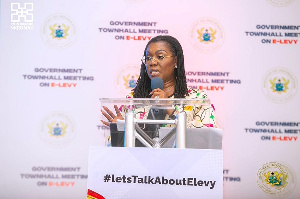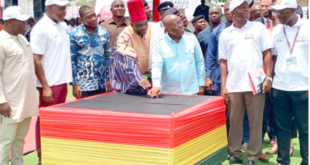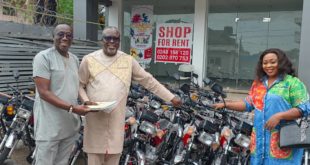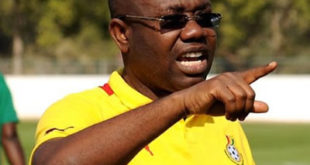Ursula Owusu twice courts controversy over E-levy defense
Majority and Minority standoff over E-levy persists
E-levy contained in 2022 budget
Communication and Digitalization Minister, Ursula Owusu-Ekuful has in the last three months courted controversy over the controversial Electronic Transactions (E-levy) tax contained in the 2022 budget.
First was what some have called her reclassification of ‘poor’ in Her infamous ‘100 cedis daily MoMo’ definition and more recent comment on the digital tax rate in the United Kingdom.
While she did not respond to the earlier one, she has mounted a defence of her position that quoting ‘up to 10%’ as the tax rate in the UK as compared to Ghana’s 1.75% was a valid point at last week’s stakeholder engagement on E-levy.
GhanaWeb looks back at the two E-levy controversies Ursula has gotten caught up in:
Speaking on GH Today on GHOne TV on November 18, 2021, she explained that anyone who has more than GH¢100 on them in a day for transactions should thereby not be considered poor and should pay taxes on their digital transactions.
“We have made it a part of this policy that up to a GH¢100 a day per person is exempt. This, the state is saying, if you’re sending up to a GH¢100 a day, cumulatively, you can send up to GH¢3000 a month, that is all going to be tax-free.
“Now, if you have more than a GH¢100 to send a day, then you’re not poor. So, if you really are poor and you are in a position to send GH¢100 a day, then we need to re-classify the definition of who the real beneficiaries of these are, and it is only the sender who pays, not the receiver,” she clarified.
Addressing a townhall meeting at Koforidua on Thursday, January 27, 2022, Ursula enumerated a number of taxes that had previously been introduced by governments stressing their importance in development efforts.
“In 2008, the government of President Kufuor, introduced the Communications Service Tax in August of that year, and it became another source of income for national development. “That tax was introduced at a rate of 6%, which was later increased to 9%.
“E-levy is being introduced at the lowest rate for any tax in Ghana, comparatively at 1.75%. Less than 2%. In other countries, digital taxes are being introduced at the rate of up to 10% and they’re paying. That’s the UK.”
She added: “…we go there (UK) and seek loans from them to finance our development. When we are not paying the requisite taxes that we should.”
A FactCheck by GhanaWeb revealed that the UK’s digital tax was pegged at 2% and it was also directed at digital corporations and not at an individual as is the case with Ghana. But the Minister insists that her comments needed to be taken into context.
Source: www.ghanaweb.com
 Home Of Ghana News Ghana News, Entertainment And More
Home Of Ghana News Ghana News, Entertainment And More






